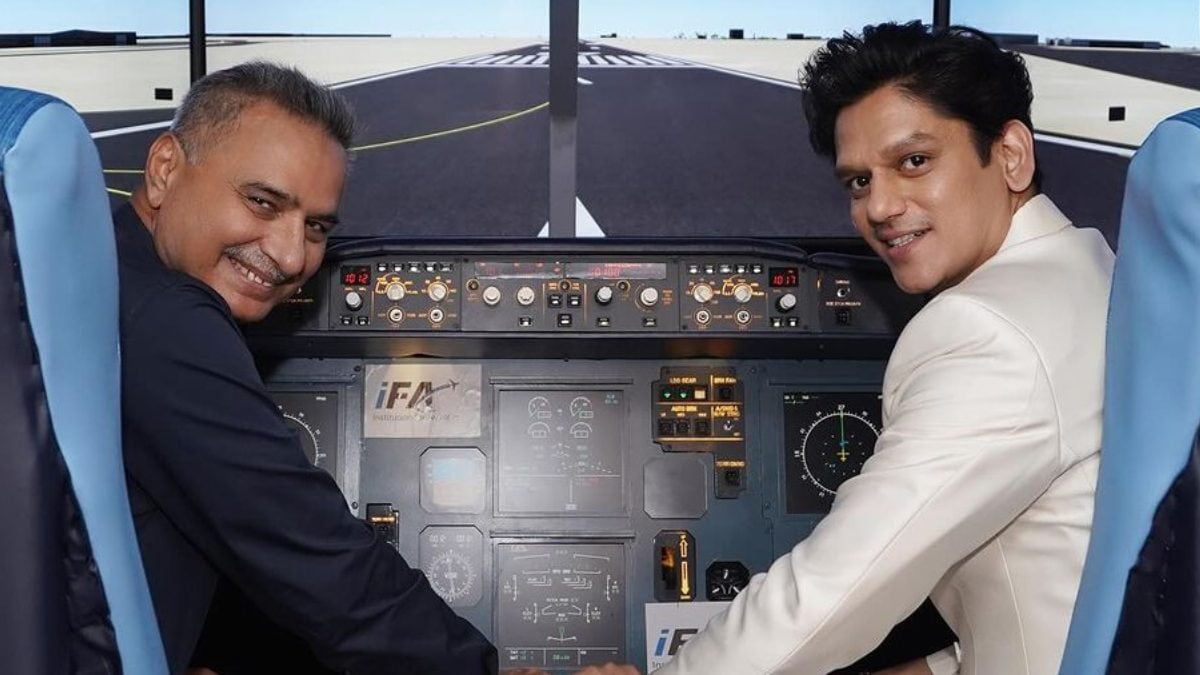Netflix’s new series, IC 814: The Kandahar Hijack, serves as a chilling reminder of the 1999 Indian Airlines hijacking. The series captures the harrowing events that unfolded over a week, where a flight bound for New Delhi from Kathmandu was held hostage by hijackers. While the series offers a dramatic retelling, it draws heavily from the real-life experiences of Captain Devi Sharan, the pilot who remained calm and collected throughout the ordeal. The series not only highlights the bravery of the pilot but also offers a deeper understanding of the emotional and psychological toll this incident had on him and the passengers.
Captain Devi Sharan’s Heroic Actions
The series portrays Captain Devi Sharan’s quick thinking and decisive actions that ultimately helped save the lives of the passengers. One of the most harrowing incidents in the series and the real hijacking was when the plane was forced to land on a highway in Lahore. Director Anubhav Sinha shared an account of his conversation with Captain Sharan during the series’ production, where the pilot explained his thought process in those desperate moments.
Forced Landing in Lahore
Captain Sharan revealed that after taking off from Amritsar, he realized within 10 minutes that the plane was running out of fuel. Despite requesting landing permission from the Lahore authorities, they refused, forcing him to make the difficult decision to land on a highway. “He was prepared to land on a highway so that at least a few people survive,” Anubhav revealed, “He also felt that this threat might convince Lahore authorities to grant us permission to land at the airport.”
This risky move, born out of a desire to ensure the survival of the passengers, highlights Captain Sharan’s unwavering courage. The episode brings to light the intense pressure he must have faced during that critical time. The series also portrays how this incident underscores the importance of collaboration and communication between authorities during a hijack situation.
The Psychological Impact
Captain Sharan’s story doesn’t just focus on his courage during the hijack; it also emphasizes the long-lasting effects the trauma had on him. Anubhav shared that Captain Sharan still carries a mark on his neck from where the hijackers had placed a gun on him during the seven-day ordeal. “It kept rubbing against his skin for so long that it left a mark, and the mark is still there,” Anubhav said.
This physical mark serves as a tangible reminder of the psychological trauma that Captain Sharan endured. It speaks volumes about the deep-seated fear and constant threat he faced throughout the hijacking. Despite the harrowing experience, Captain Sharan’s remarkable resilience is showcased in his decision to resume flying just four days after the hijack ended. His choice reflects his unwavering dedication to his profession and his refusal to allow fear to control his life.
Recreating the Reality
The series not only aims to capture the events of the hijacking but also aims to highlight the impact on the individuals involved. Director Anubhav Sinha has been lauded for his approach of staying true to the real events and seeking insights from real-life individuals. The conversation with Captain Sharan and the detailed depiction of the pilot’s mark highlight his commitment to ensuring the authenticity of the series.
The series is a testament to the director’s meticulous approach to capturing the emotional nuances of the incident. Anubhav’s portrayal of the pilot’s unwavering determination, the fear and desperation of the passengers, and the tense atmosphere of the hostage situation showcases the series’ strength. It is this combination of historical accuracy and emotional depth that makes the series a compelling and poignant watch.
The Importance of Historical Storytelling
The series sheds light on an often overlooked aspect of the hijacking, focusing on the impact on the individuals involved. It moves beyond the news reports and official statements to explore the human side of the event, revealing the bravery, resilience, and deep emotional impact of the incident on those who were there.
This approach helps the series connect with audiences on a more profound level, urging viewers to reflect on the human cost of such events and understand the sacrifices made by individuals like Captain Sharan. The series acts as a reminder of the critical role these heroes play in situations that require incredible courage and resilience.
Beyond the Hijack: Captain Devi Sharan’s Resilience
The series provides a platform to celebrate Captain Sharan’s bravery and his decision to continue flying after such a traumatic event. His quick thinking and unwavering resolve under extreme pressure are an inspiration to many. The story serves as a powerful reminder of the human spirit’s ability to overcome even the most daunting of challenges.
Facing Fear and Continuing the Journey
Captain Sharan’s resilience showcases the incredible strength of the human spirit. He didn’t allow the fear of another hijacking to take over his life and continue doing what he was passionate about, inspiring others to persevere despite their fears.
By choosing to resume his job so soon after the hijacking, Captain Sharan demonstrated a remarkable ability to confront his fears head-on. His decision serves as a reminder that while trauma can leave a lasting impact, the human spirit can find the strength to overcome even the most difficult obstacles.
Takeaways:
- IC 814: The Kandahar Hijack, showcases the heroism of Captain Devi Sharan during the 1999 Indian Airlines hijacking.
- The series provides a realistic portrayal of the events and the lasting impact the incident had on those involved, particularly Captain Sharan.
- The series celebrates the resilience of Captain Devi Sharan, who resumed flying just four days after the hijacking, showcasing the power of human spirit to overcome trauma.
- The series underlines the importance of understanding the human cost of major events, while honoring the courage of those who faced unimaginable situations.









